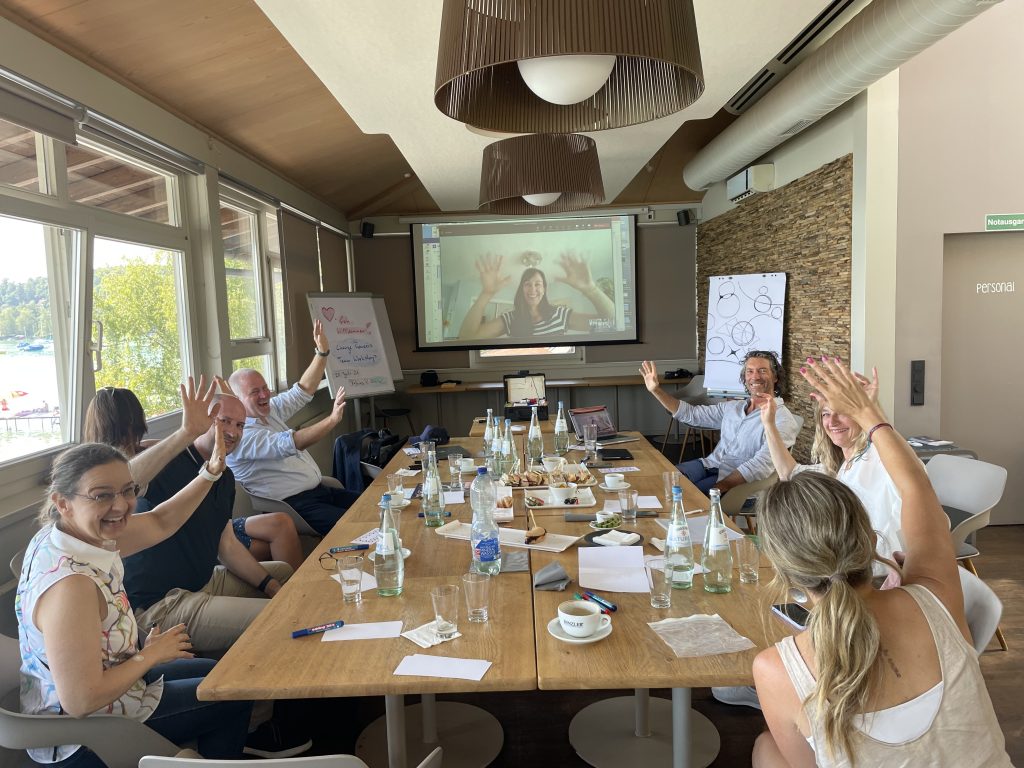As leaders, we are accustomed to quickly grasping things and, above all, developing functional solutions to problems. We tend to focus on the end result: it must fit, milestones must be met, the IT system must run, revenue must come in.
However, in the art of leadership, there are some issues that, due to their complexity, dynamics, or unclear situations, require a different, more process- or growth-oriented approach. These are topics such as vision development, steering transformations, dealing with team conflicts, and employee development.
A growth mindset enables the art of leadership
Führungskräfte mit so einer wachstumsorientierten Denkweise betrachten Herausforderungen als Gelegenheit zum Lernen und Wachsen. Mit einer wachstumsorientierten Denkweise konzentrieren sie sich auf den Prozess des Lernens und der Entwicklung und nicht nur auf das Endergebnis.
Although it may seem counterintuitive to the many other transactional tasks that managers have to handle, one is more willing to take risks and seek feedback. Leaders with a growth-oriented mindset are also more open to criticism and willing to ‘show up’ and take an honest look at their own skills and strengths, as well as those of their team and organization. This ‘growth mindset’ encourages leaders to experiment and make mistakes in order to learn from them.
As the first step towards a growth-oriented mindset, taking responsibility for one’s own learning and development is crucial. Leaders must proactively seek new learning and development opportunities or be open to them and be willing to put in the effort and work to achieve learning progress and results.
These learning progressions can occur on entirely different, sometimes much deeper levels than what we are accustomed to in transactional learning (knowing-doing). This, too, may seem counterintuitive, as managers are expected to make the most efficient use of their time. However, efficiency here is measured by a different standard than the one we are used to (genuine understanding and development versus quick memorization/tool solutions).
Benchmarking and real tips – learning from and with each other, especially for leaders
In this context, ‘soziales Lernen’ – which is a key element of Leading Awesome – is an important component in developing a growth mindset, a ‘Growth-Mindset.’ Social learning is a process of learning from others, and this can happen in various ways. For instance, one can observe the behavior of others and learn from their successes and failures or ask questions and seek advice from knowledgeable individuals. This type of learning helps in developing an understanding of how others think and behave, which can lead to better decision-making and problem-solving abilities.

Social learning is also an important part of leadership development. A leader with a growth-oriented mindset recognizes the importance of learning from others and seeks feedback and advice from colleagues, mentors, and peers. They won’t hesitate to ask questions and challenge their own assumptions, and they will make an effort to understand the perspective of others. They will also be open to learning new skills, such as communication and problem-solving, and they will strive to develop their leadership qualities through the insights of others.
And come Monday at the office, nothing changes: patient training in conference seminar hotels is a thing of the past
Finally, it’s important to put what you’ve learned into practice. This means applying what you’ve learned in practical situations, such as trying out new approaches or facing new challenges. This way, you can solidify and further develop the skills and knowledge you’ve acquired.
If experimentation is closely integrated with learning, it becomes highly efficient and provides immediate feedback. That’s why participants in Leading Awesome are encouraged to adopt new behaviors that immediately impact their professional lives during individual sessions (‘nudging into action’).
This practical ‘practice’ also strengthens self-efficacy and self-confidence, which are essential for successful leadership.
To sum it up:
- A growth-oriented mindset is essential for the successful development of leaders.
- To cultivate this mindset, leaders must focus on the process of learning and development, actively seeking new learning opportunities.
- They must also embrace social learning and be open to feedback and criticism. This will help them learn intrinsically and evolve.
- Ultimately, a growth-oriented mindset is the key to developing strong leaders who can adapt and thrive in any situation.
Learn more about our innovative peer-to-peer learning program, Leading Awesome / Enrollment for the program starting on September 28th is now open.



